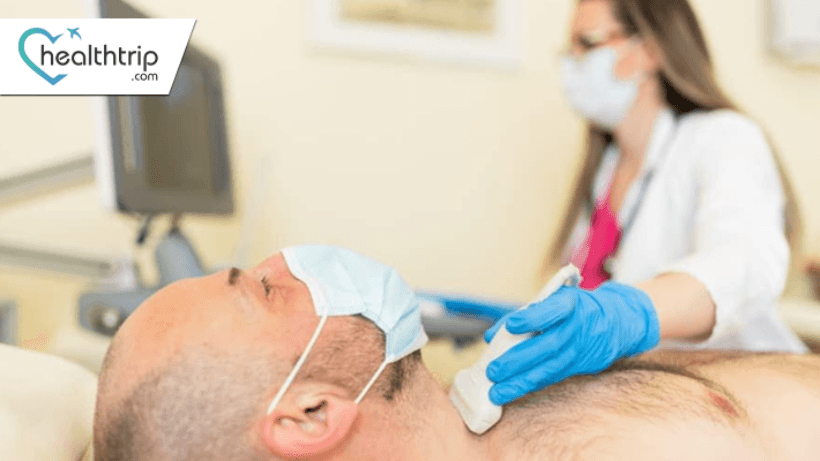
Thyroid Cancer: Types, Diagnostics, and Treatment
17 Oct, 2023
 Healthtrip Team
Healthtrip TeamThyroid cancer, emerging from the thyroid gland in the neck, is a multifaceted condition marked by various types and diagnostic intricacies. This exploration navigates through the complexities of the disease, encompassing demographics, diagnostic procedures, and crucial aspects of treatment, emphasizing the importance of early detection and continuous care in managing this intricate medical challenge.
Most popular procedures in India
What is Thyroid Cancer?
Thyroid cancer is a type of cancer that begins in the thyroid gland, a small, butterfly-shaped organ located at the base of your neck. The thyroid plays a crucial role in regulating various body functions by producing hormones. When cells in the thyroid undergo abnormal changes and start to grow uncontrollably, it leads to thyroid cancer. This condition can affect people of all ages, and understanding its nature is essential for early detection and effective treatment.
Wellness Treatments
Give yourself the time to relax
Lowest Prices Guaranteed!

Lowest Prices Guaranteed!
Women are three times more likely than men to develop thyroid cancer.
Types
A. Papillary Thyroid Cancer
Papillary thyroid cancer is the most common type, often found in the thyroid's cells responsible for producing thyroid hormones. It tends to grow slowly and is usually less aggressive compared to other forms. While it can affect people of any age, it is more common in younger individuals.
B. Follicular Thyroid Cancer
Follicular thyroid cancer originates in the follicular cells of the thyroid, playing a role in hormone production. Like papillary cancer, it typically progresses at a moderate pace. It may also affect a slightly older age group compared to papillary thyroid cancer.
C. Medullary Thyroid Cancer
Medullary thyroid cancer develops in the C cells of the thyroid, which produce a hormone called calcitonin. This type is less common but can have a genetic link. It may also be associated with other conditions. While it tends to grow more slowly than anaplastic thyroid cancer, early detection is crucial for effective treatment.
D. Anaplastic Thyroid Cancer
Anaplastic thyroid cancer is the most aggressive and least common type. It often grows rapidly and can be challenging to treat. This type of cancer usually occurs in older individuals and may arise independently or from the progression of a less aggressive type. Due to its aggressive nature, prompt diagnosis and intervention are critical.
Demographics
A. Age Distribution
Thyroid cancer can affect individuals of all ages, but it is more commonly diagnosed in people between the ages of 25 and 65. It is relatively rare in children and older adults.
B. Gender Distribution
Thyroid cancer is more prevalent in women than in men. Women are three times more likely to develop thyroid cancer, and this gender difference is consistent across various types of thyroid cancer.
C. Geographical Prevalence
The prevalence of thyroid cancer varies globally. Certain regions, such as Southeast Asia and Oceania, have higher rates of thyroid cancer. However, advancements in detection and increased awareness can influence reported prevalence rates. Thyroid cancer incidence may also be influenced by iodine levels in the diet.
Symptoms and Signs
A. Thyroid Nodule
- Presence of a lump or swelling in the thyroid gland area
- Observable or palpable mass in the neck
B. Swelling in the Neck
- Visible enlargement of the thyroid gland
- Swelling or bulging in the front of the neck
C. Difficulty Swallowing
- Sensation of a lump in the throat
- Pain or discomfort while swallowing
D. Hoarseness
- Changes in voice quality
- Persistent hoarseness unrelated to common causes like a cold
E. Changes in Voice
- Alterations in pitch or tone of the voice
- Persistent changes that are not associated with usual factors like a temporary illness
Causes
A. Genetic Factors
- Inherited genetic mutations contributing to an increased risk
- Family history of thyroid cancer
B. Radiation Exposure
- Exposure to ionizing radiation, especially during childhood
- Previous radiation treatments to the head or neck
C. Thyroid Conditions
- Pre-existing thyroid conditions like goiter or thyroid nodules
- Chronic inflammation of the thyroid (thyroiditis)
D. Environmental Factors
- Certain environmental factors, though specific links may vary
- Iodine levels in the diet and environmental exposure
Diagnosis
A. Physical Examination
Palpation of the thyroid gland is a crucial component of the diagnostic process, allowing healthcare professionals to detect any abnormalities or swelling. Additionally, a thorough evaluation of the neck is conducted to identify lumps, nodules, or enlarged lymph nodes, providing valuable insights into potential thyroid issues.
B. Imaging Studies (Ultrasound, CT, MRI)
Utilizing advanced imaging technologies is fundamental in diagnosing thyroid conditions. Ultrasound, employing high-frequency sound waves, produces detailed images of the thyroid. Computed Tomography (CT) offers cross-sectional X-ray images, providing more intricate views, while Magnetic Resonance Imaging (MRI) utilizes magnetic fields and radio waves to generate detailed images. These imaging studies contribute to a comprehensive understanding of the thyroid's structure and any potential abnormalities.
C. Fine Needle Aspiration (FNA)
Biopsy Fine Needle Aspiration (FNA) Biopsy involves extracting a small tissue sample from the thyroid nodule using a thin needle. This sample is then examined under a microscope to determine the presence of cancerous cells. FNA Biopsy is a crucial diagnostic tool, enabling healthcare professionals to make informed decisions about the nature of the thyroid nodule.
D. Blood Tests (Thyroid Function Tests)
Blood tests play a vital role in diagnosing thyroid dysfunction and the potential presence of thyroid cancer. Thyroid Function Tests measure levels of thyroid hormones (T3, T4, and TSH) in the blood. Deviations from normal levels can indicate underlying thyroid issues, guiding further diagnostic and treatment decisions. These blood tests are an integral part of the diagnostic process, providing valuable insights into thyroid function and potential abnormalities.
Treatment options
Treatment options for thyroid cancer encompass a range of interventions tailored to the specific type and stage of the disease.
A. Surgery
- Thyroidectomy: This involves the removal of part or all of the thyroid gland. It's a common procedure for various types of thyroid cancer and aims to eliminate cancerous tissue.
- Lymph Node Dissection: Often performed alongside thyroidectomy, it involves removing lymph nodes to prevent the spread of cancer.
B. Radioactive Iodine Therapy
This treatment involves administering radioactive iodine, which is taken up by thyroid cells. It is particularly effective for certain types of thyroid cancer, targeting and destroying remaining thyroid tissue or cancer cells.
C. External Beam Radiation Therapy
High-energy beams are directed at the cancer site from outside the body. It's used when surgery is not an option or to target residual cancer cells.
D. Chemotherapy
While less common for thyroid cancer, chemotherapy involves the use of drugs to kill or slow the growth of cancer cells. It may be considered in advanced cases.
E. Targeted Therapy
- Targeted therapy uses medications that focus on specific molecules involved in cancer growth. This approach is often employed when other treatments are not effective, especially in advanced or recurrent cases.
Risk Factors
Family history of thyroid cancer is a risk factor for the disease.
- Incidence increases with age, particularly prevalent in individuals over 60.
- More common in women, with women being three times more likely to develop thyroid cancer than men.
- Increased risk associated with a family history of thyroid cancer.
- Certain genetic factors may contribute to familial cases
- Previous exposure to ionizing radiation, especially during childhood, is a risk factor.
- Radiation treatments to the head or neck increase the likelihood of developing thyroid cancer.
- Syndromes such as familial medullary thyroid cancer (FMTC) or multiple endocrine neoplasia (MEN) can elevate the risk of thyroid cancer.
How can we help with the treatment?
- If you're on the lookout for treatment in India, Thailand, Singapore, Malaysia, UAE, and Turkey, let Healthtrip be your compass. We will serve as your guide throughout your medical treatment. We'll be by your side, in person, even before your medical journey commences. The following will be provided to you:
- Connect with renowned doctors from a network spanning 35+ countries and access the world's largest health travel platform.
- Collaboration with 335+ top hospitals , including Fortis and Medanta.
- Comprehensive treatments from Neuro to Cardiac to Transplants, Aesthetics, and Wellness.
- Post-treatment care and assistance.
- Teleconsultations at $1/minute with leading surgeons.
- Trusted by 44,000+ patients for appointments, travel, visa, and forex assistance.
- Access top treatments and packages, such as Angiograms and many more.
- Gain insights from genuine patient experiences and testimonials.
- Stay updated with our medical blog.
- 24/7 unwavering support, from hospital formalities to travel arrangements or emergencies.
- Pre-scheduled specialist appointments.
- Prompt emergency assistance, ensuring safety.
Our success stories
Complications
- Recurrence
- Return of cancer after treatment.
- Regular monitoring is crucial to detect and manage recurrence.
- Metastasis
- Spread of cancer cells to other parts of the body.
- Common sites include lymph nodes, lungs, and bones.
- Hypoparathyroidism
- Impaired function or removal of the parathyroid glands during surgery can lead to low calcium levels.
- Requires ongoing management and supplementation.
- Vocal Cord Damage
- Possible during surgery, especially in cases where the cancer has invaded surrounding structures.
- May result in voice changes or difficulty speaking.
Preventive Measures
- Regular Thyroid Check-ups
- Routine check-ups with a healthcare professional for thyroid health assessment.
- Regular monitoring of thyroid function through blood tests and imaging.
- Minimizing Radiation Exposure
- Avoid unnecessary exposure to ionizing radiation.
- Follow safety guidelines for medical procedures involving radiation.
- Genetic Counseling for High-Risk Individuals
- Consider genetic counseling for individuals with a family history of thyroid cancer.
- Evaluate the need for genetic testing to identify and manage inherited risks.
Prognosis and Follow-up
- Stage of Cancer
- Prognosis often depends on the stage at which thyroid cancer is diagnosed.
- Early-stage cancers generally have a more favorable outlook.
- Response to Treatment
- Successful treatment outcomes are influenced by how well the cancer responds to interventions.
- Prompt and effective treatment can significantly improve prognosis.
- Follow-up Care
- Regular follow-up appointments are crucial for monitoring and managing any potential recurrence.
- Ongoing care helps ensure the best possible long-term outcomes.
In summary, the key points regarding thyroid cancer involve recognizing its types, understanding the demographics, and being aware of symptoms. Early detection and timely treatment are emphasized to enhance outcomes. Equally important is the ongoing monitoring and follow-up care, contributing to long-term well-being by identifying potential issues and managing complications post-treatment. Overall, a comprehensive approach that combines early detection, effective treatment, and continuous care is vital in the fight against thyroid cancer.
Related Blogs

Discover the Future of Healthcare at Yashoda Hospitals Hitec City
Experience world-class medical care at Yashoda Hospitals Hitec City, a
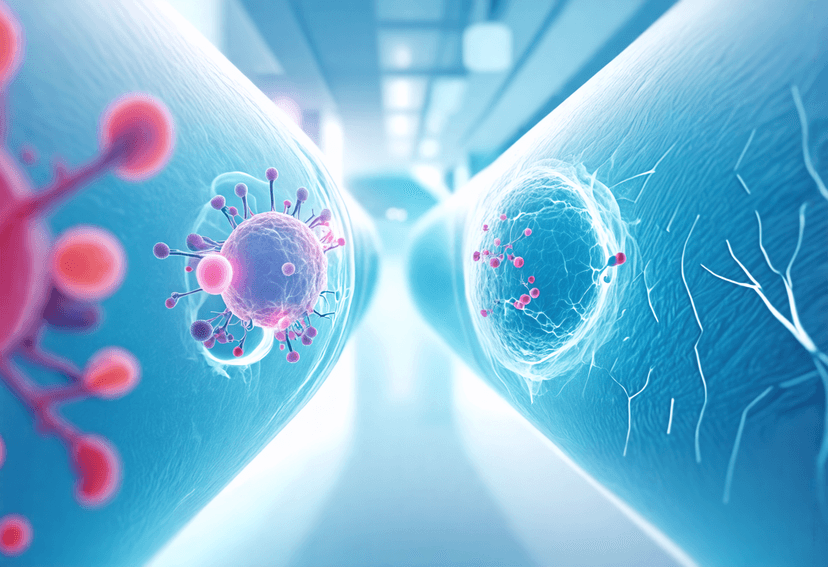
Bladder Cancer Treatment with Radiation Therapy and Immunotherapy
Learn about the combination of radiation therapy and immunotherapy for
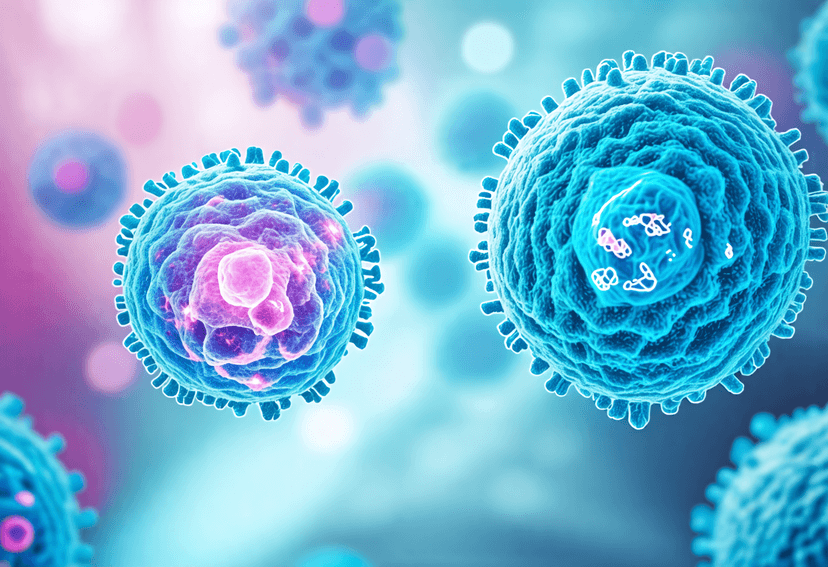
Targeted Therapy for Cancer: A New Approach
Learn about targeted therapy and its role in cancer treatment.
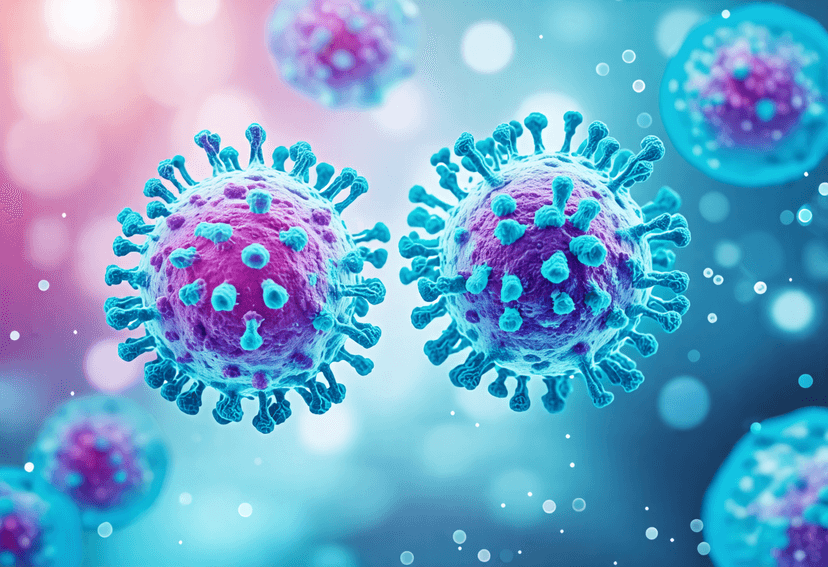
Immunotherapy for Cancer: What You Need to Know
Learn about immunotherapy and its potential in cancer treatment.
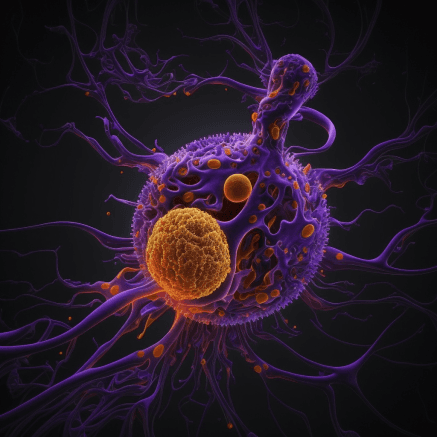
Pancreatic Cancer Treatment Options in the UK: A Guide for Patients from Russia
Facing a diagnosis of pancreatic cancer can be overwhelming, especially
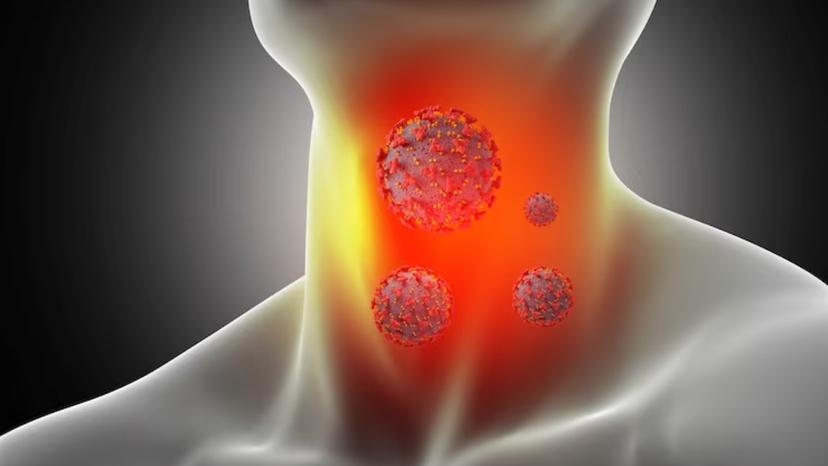
Treatment Options for Thyroid Cancer
Facing a thyroid cancer diagnosis is daunting, especially when considering










